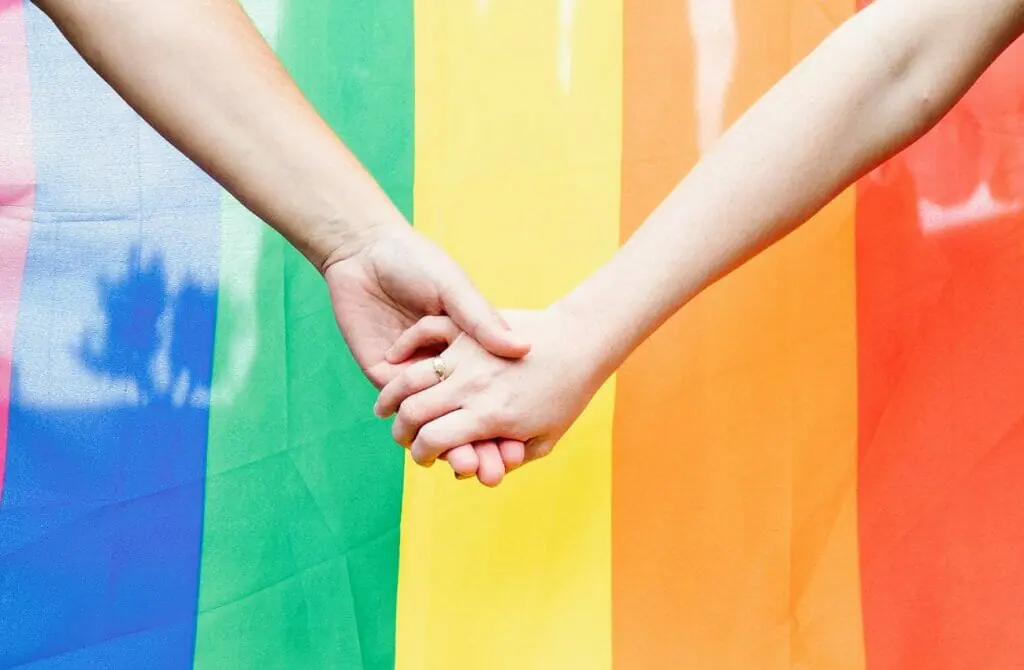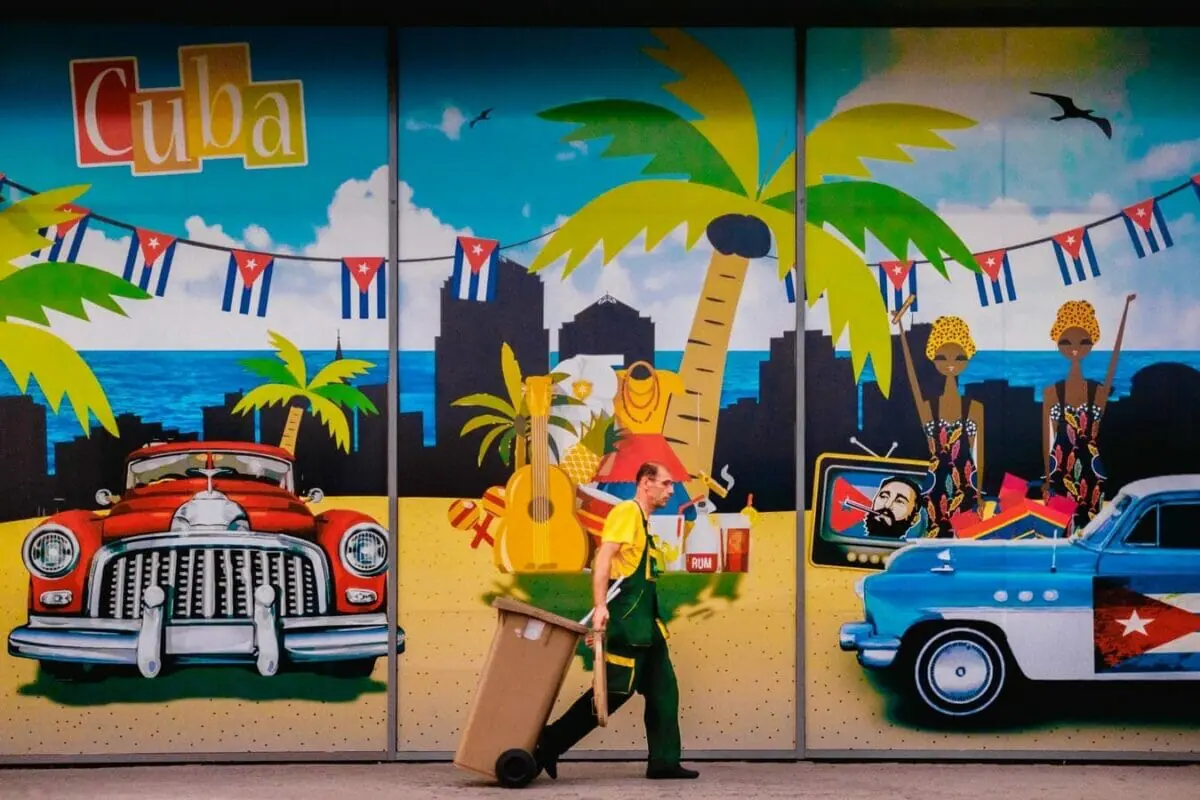As Cuba takes significant strides toward advancing LGBT rights, this Caribbean nation emerges as a forerunner in promoting acceptance and inclusivity. Among the most progressive nations in Latin America, Cuba made history in 2022 when it held a national referendum, resulting in the legalization of same-sex marriage, paving the way for further advancements in the rights of both locals and tourists alike.
This exciting development showcases the nation’s dedication to fostering a more inclusive environment.
While it is clear that the situation for LGBT individuals in Cuba has made considerable progress, travelers and locals should remain cautious and vigilant, as changes in legislation and public sentiment can happen rapidly, and bad actors may still be present. To ensure one’s safety and enjoyment while exploring this vibrant country, it is crucial to stay up-to-date with the latest local news and information on LGBT rights.
For those seeking support and resources, numerous LGBT advocacy groups work tirelessly in Cuba to promote equality and provide assistance to the community. Connecting with these organizations can offer invaluable guidance, resources, and camaraderie for both locals and visitors navigating their experiences in Cuba.
As the landscape of LGBT rights in the country evolves, remember that staying informed and engaged is key for everyone to enjoy the rich culture and warm hospitality for which Cuba is known.
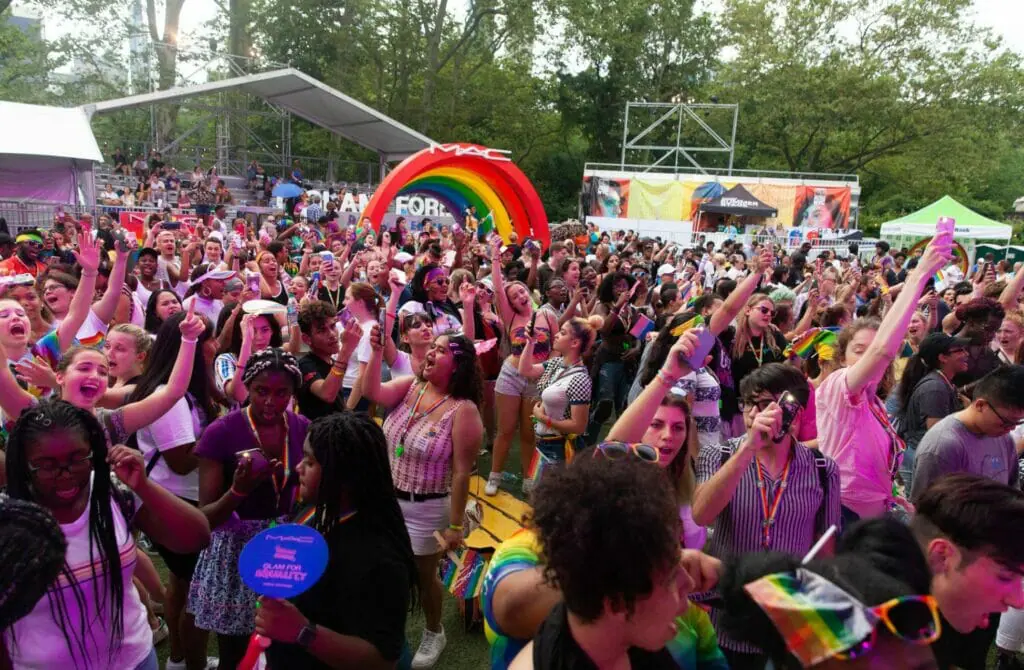
History Of LGBT Rights In Cuba
In pre-revolutionary Cuba, the LGBT community faced significant intolerance due to the emphasis on traditional heteronormativity. Legislation such as the Public Ostentation Law in the 1930s encouraged harassment towards those who didn’t hide their orientation, aligning Cuba’s treatment of the LGBT community with that of the rest of Latin America.
However, a shift in the Cuban government’s treatment of the LGBT community began in 1979 when homosexuality was decriminalized in the Cuban penal code. This marked the end of a dark period, and since then, progress has continued. In 2008, the government passed a law allowing state-funded gender reassignment surgery and hormone treatment for transgender individuals, and in 2013, anti-gay discrimination in the workplace was banned.
The situation for local LGBT individuals versus tourists varies. While locals have experienced historical persecution and are currently gaining rights, LGBT tourists might face different challenges. It is essential for tourists to be aware that the situation can change quickly, and information can become outdated. Always seek current advice before traveling, and remember, bad actors exist in every country, so remain vigilant.
To protect oneself, it’s crucial to err on the side of caution and connect with relevant LGBT advocacy groups, such as the Cuban National Center for Sex Education (CENESEX). Staying informed and aware of your rights while visiting the country is an essential step to ensuring a safe and enjoyable experience.
Remember, situations may change rapidly, so make sure to stay updated and consult current resources to navigate the exciting journey of LGBT rights in Cuba.
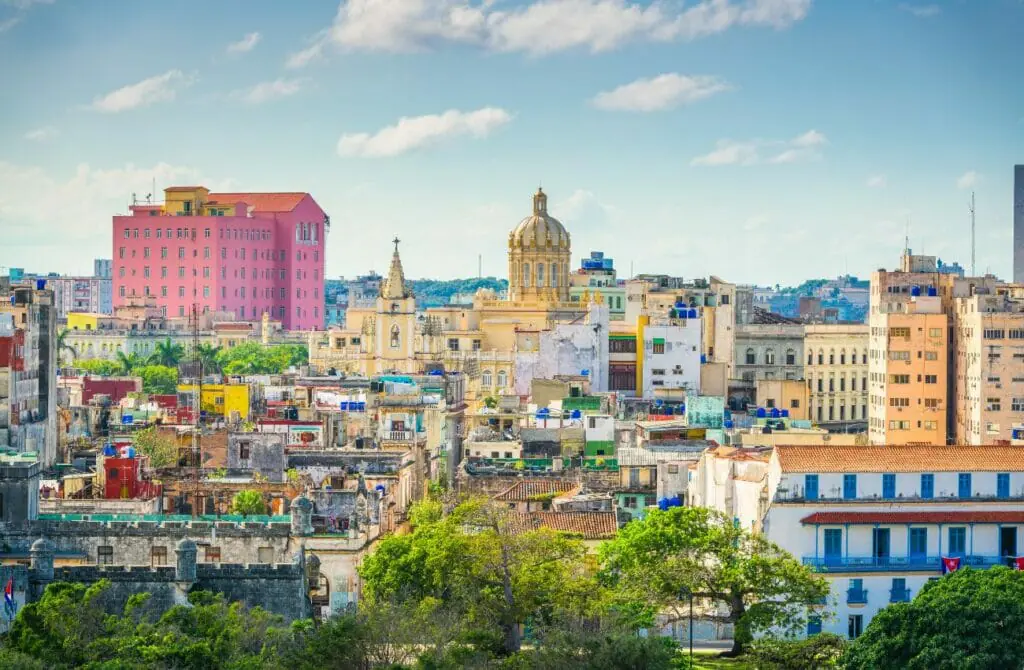
The LGBT Legal Situation In Cuba
Cuba has made significant strides in recent years regarding LGBT rights. In 2022, the country voted to legalize same-sex marriage through a national referendum, making it one of the most progressive Latin American countries in terms of family law. This updated Family Code also includes provisions for same-sex adoption, non-commercial surrogacy, and protections against discrimination based on sexual orientation and gender identity.
For both locals and tourists, these legal changes signify a shift in societal attitudes. However, it is essential to remain cautious and vigilant, as bad actors can exist in any country. Situations may evolve rapidly, and information may quickly become outdated. Before traveling, always seek current, reliable advice about the local LGBT community and any potential risks.
If visiting Cuba, it’s critical to be aware of steps that could help protect you as a traveler. Stay informed about any local or regional LGBT events, political changes, or social trends that may affect your safety. Look for guidance from reputable sources like government travel advisories, international organizations, and trusted local contacts.
Cuba has several active LGBT advocacy groups, such as the National Center for Sex Education (CENESEX) and Proyecto Arcoiris, that play crucial roles in promoting acceptance, raising awareness, and providing support for the community. Keeping yourself informed about their activities and recommendations can help you stay knowledgeable and well-prepared for any potential changes in the legal landscape or political environment.
In summary, as an excited globetrotter ready to explore Cuba, it’s crucial to stay informed, cautious, and adaptable. Embrace the advances made in LGBT rights while maintaining vigilance to ensure a safe and enjoyable visit.
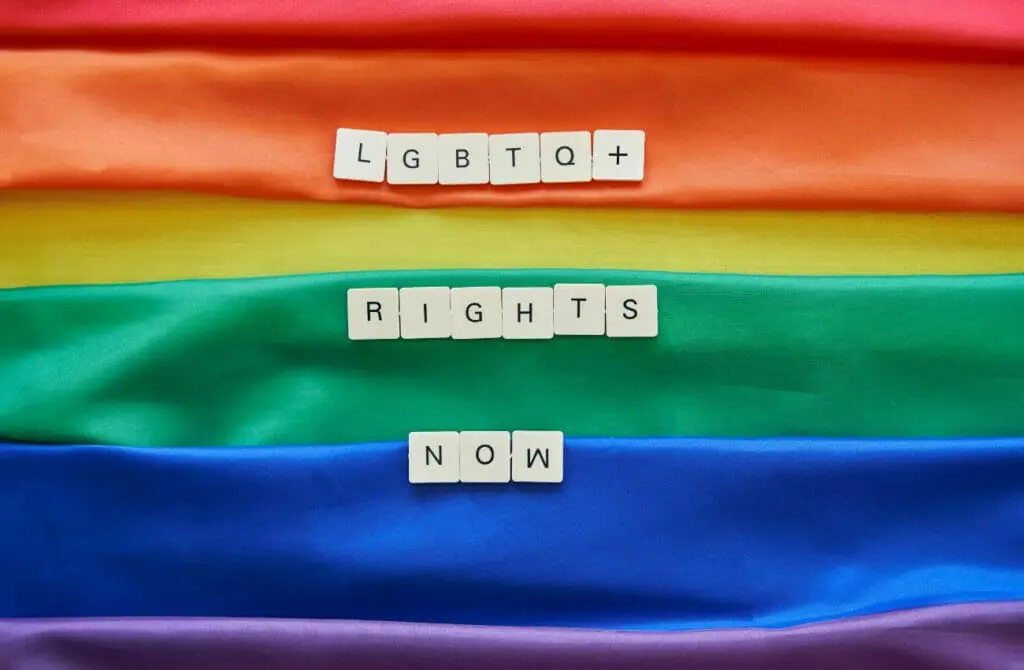

The LGBT Social Situation In Cuba
The social landscape has undergone various changes in Cuba, particularly with respect to the rights of the LGBT community. Following the 2022 Cuban Family Code referendum, the country witnessed legal recognition of marriage and unions between people of the same sex, same-sex adoption, and non-commercial surrogacy, becoming one of the most progressive Family Codes in Latin America.
This remarkable progress has enabled a more inclusive atmosphere not only for locals but also for tourists visiting the beautiful island nation.
However, while the situation has improved, it’s essential to recognize that some challenges still remain, and it’s crucial to remain vigilant. The Cuban government has faced criticism for repressing and punishing dissent and public criticism. To protect oneself from any unforeseen issues, it helps to be well-informed about current local laws and situations and always seek up-to-date advice before traveling.
Because situations can change rapidly, it’s essential to stay connected with local LGBT advocacy groups to access the latest information and gather support if needed. These groups also provide useful resources for travelers to ensure their safety and well-being in the country.
Undoubtedly, Cuba has come a long way in terms of LGBT rights, reflecting its commitment to fostering a more open and welcoming environment for all. Be sure to bask in the vibrant Cuban culture while also keeping your eyes and ears open to the ever-evolving social situation. So travel with excitement and enthusiasm, but always trust your instincts and remain cautious. Happy exploring!
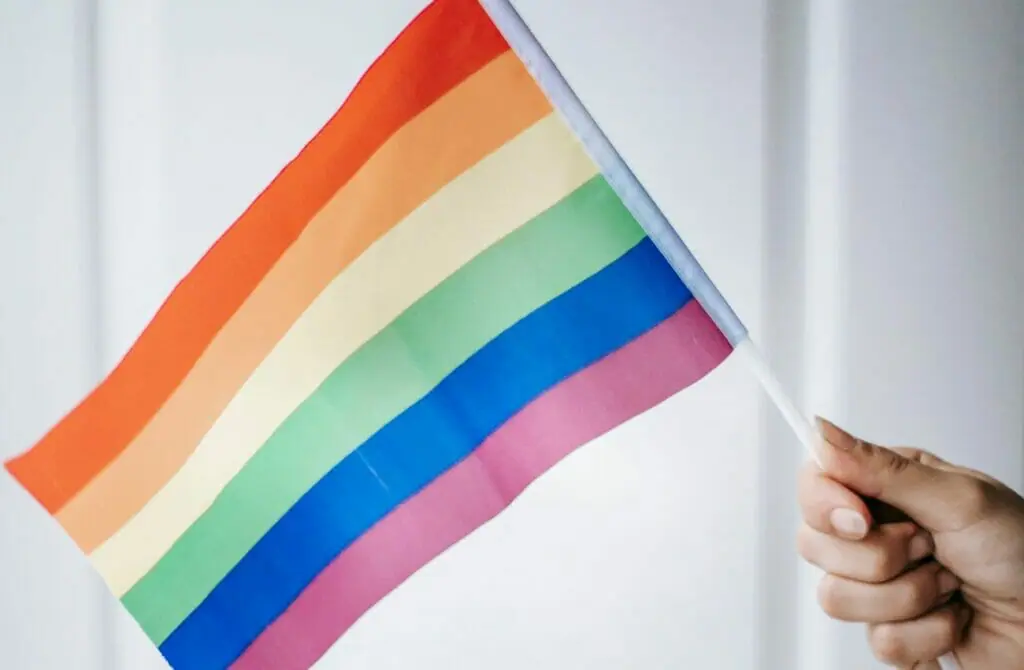
Trans Rights In Cuba
Cuba has made significant progress in terms of LGBT rights and has recently legalized same-sex marriage, which reflects the changing attitudes towards the LGBT community. While this is a major milestone, trans rights still require attention and progress.
Trans individuals in Cuba have experienced the benefits of evolving attitudes and governmental efforts to support the LGBT community. In fact, since 2008, the Cuban government has provided free gender-affirmation surgeries to eligible individuals. This progress can be partially attributed to Mariela Castro- the daughter of President Raúl Castro and a strong advocate for LGBT rights.
However, it is essential to note that there might be differences in how the local population and tourists experience LGBT rights in Cuba. Tourists visiting the island may encounter fewer issues as they mostly stay within their designated tourist areas. On the other hand, local trans individuals might still face challenges in their day-to-day lives, such as employment and housing discrimination.
For travelers visiting Cuba, it is vital to remain vigilant and cautious, as situations can change rapidly, and information might become outdated. Always seek up-to-date advice before traveling to the country. Likewise, keep in mind that bad actors exist everywhere, so remain aware of your surroundings and take necessary precautions.
To help protect the rights of trans individuals in Cuba, consider connecting with and supporting local LGBT advocacy groups, which play a significant role in raising awareness and pushing for policy changes. A well-known organization in Cuba is the National Center for Sexual Education (CENESEX), which promotes LGBT rights and provides educational resources.
In conclusion, while there have been exciting advancements in LGBT rights, trans rights in Cuba still have room for improvement. Stay informed and cautious while traveling, and support local LGBT advocacy groups to help foster a more inclusive environment for everyone in the country.
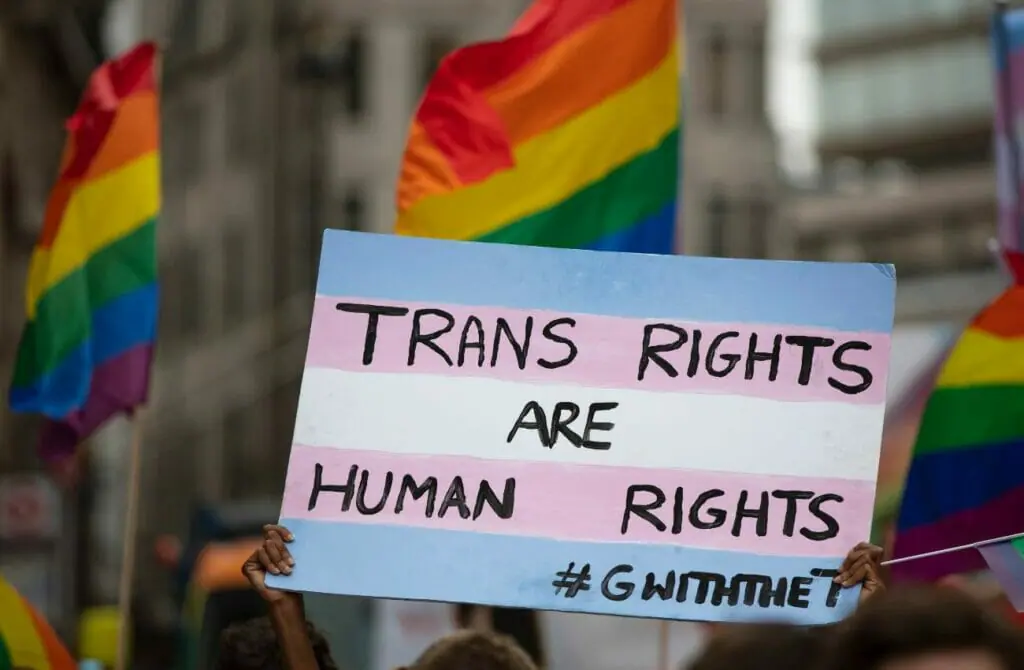

The Future For The Queer Community In Cuba
LGBT rights in Cuba have come a long way since the days of oppression and discrimination. With the legalization of same-sex marriage and adoption in 2022, the country has taken significant steps towards inclusivity and progress. This newfound acceptance has sparked excitement among both local LGBT individuals and tourists alike.
However, it is important to remain cautious and vigilant when traveling to Cuba, as situations can change rapidly, and information can become outdated. Be sure to seek current advice on LGBT rights and safety before embarking on your journey.
For local people, the future of LGBT rights in Cuba is decidedly promising. With growing visibility and the backing of key legislation, the country is moving towards becoming an inclusive and supportive environment for LGBT individuals. Communities are gradually becoming more accepting, and Cuba has even been heralded as one of the most progressive nations in Latin America in terms of its Family Code.
Tourists visiting Cuba can enjoy this increasingly open and accepting environment. However, it is crucial to respect local customs and remain aware of potential risks from bad actors. While Cuba has made significant strides in terms of LGBT rights, it is important to remember that prejudices can still exist and ensuring your safety should always be a top priority.
In order to stay informed and protected, it’s recommended to connect with relevant LGBT advocacy groups in the country. These organizations will be able to provide up-to-date information and support should any issues arise during your time in Cuba.
In conclusion, when navigating the future of LGBT rights in Cuba, it is essential to remain excited about the positive changes that have been made while also staying vigilant and informed about current conditions.
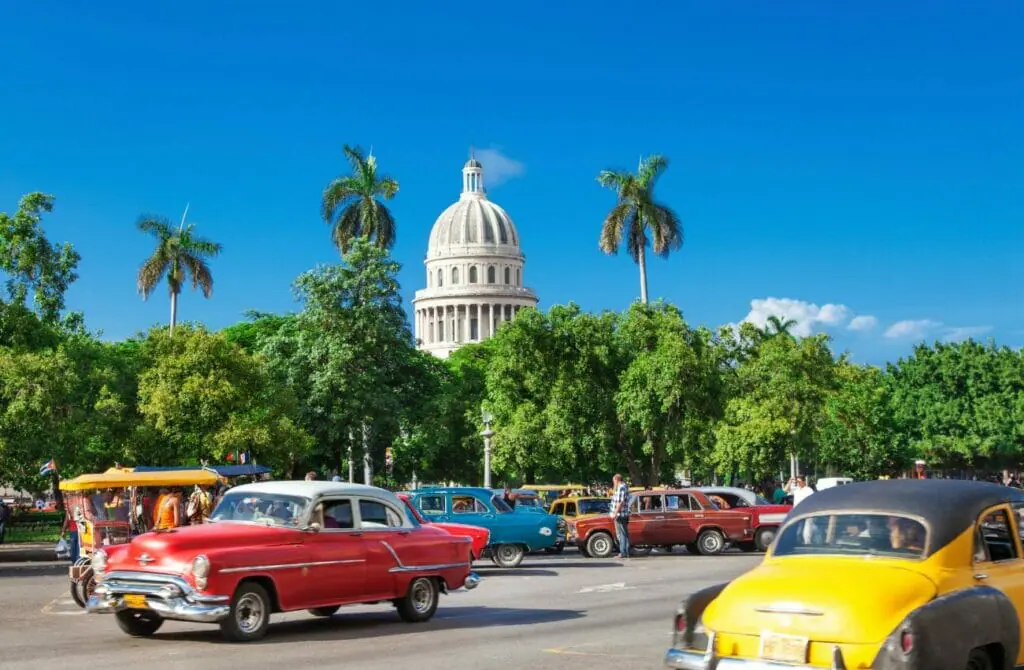
Protect Yourself While Travelling In Gay Cuba
As a traveler to Cuba, it’s essential to understand and respect the local LGBT community and their rights. Being aware of these rights can help you protect yourself and ensure a positive, inclusive experience for all.
Legal recognition of same-sex marriage, adoption, and non-commercial surrogacy has made Cuba one of the most progressive countries in Latin America in terms of LGBT rights. However, it’s crucial to stay vigilant, remain cautious, and seek current advice before traveling, as situations can change quickly, and there may be bad actors in every country.
While LGBT rights have significantly improved in recent years, there may still be instances where local attitudes differ from those of tourists. To protect yourself, it’s essential to be sensitive to the cultural context and avoid drawing unnecessary attention to your sexuality or gender identity. Always err on the side of caution and respect the privacy of the local LGBT community.
LGBT rights in Cuba may vary between urban and rural areas, and public displays of affection could be met with different reactions depending on where you are. In general, it’s a good idea to observe the behavior of locals and follow their lead when it comes to expressing affection or discussing LGBT issues. Keep in mind that awareness and acceptance of LGBT rights can vary, even within the same city.
When navigating Cuba as an LGBT traveler, it’s essential to stay informed about the latest developments in the country and communicate with individuals from the local community. Seeking advice from relevant LGBT advocacy groups can help you stay updated on current information and resources in the country. These groups can be a valuable source of support and provide you with safety guidelines, cultural nuances, and tips for navigating potential challenges during your trip.
In conclusion, as exciting as it may be to explore the vibrant culture and history of Cuba as an LGBT traveler, it’s vital to stay informed, be cautious, and respect local laws and customs. By doing so, you can ensure a safe, enjoyable, and inclusive experience for yourself and the local LGBT community.
